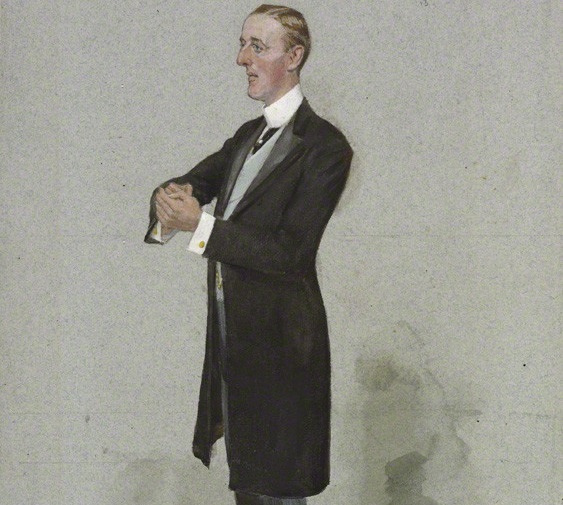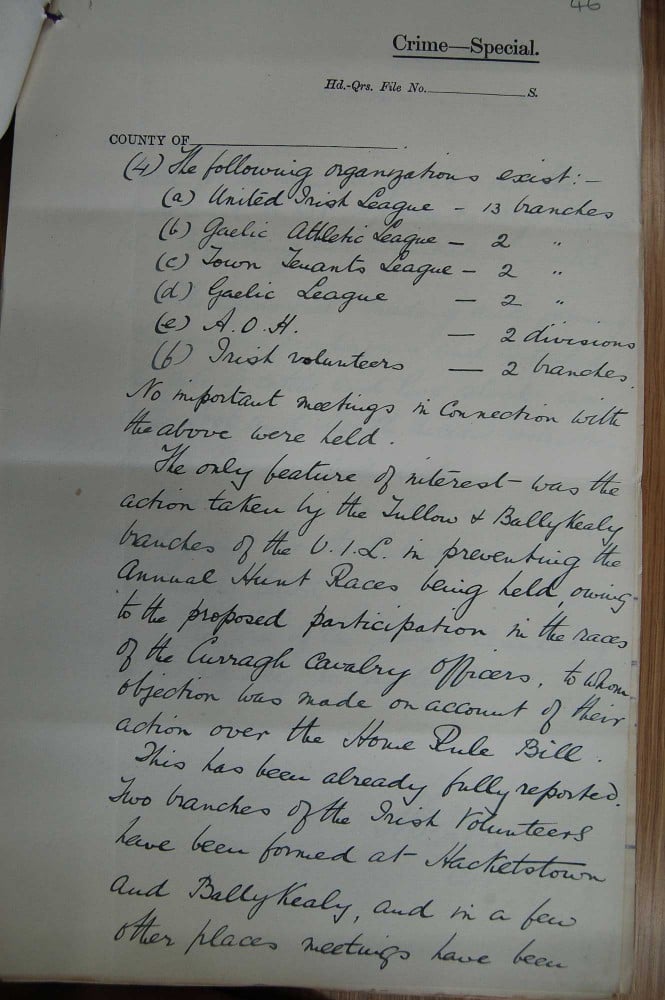Curragh Mutiny: more revelations
Carson claims ‘wicked and damnable plot against Ulster’
The Ulster Unionist Council has claimed that there was ‘a wicked and damnable plot against Ulster’ which had been orchestrated by the British government.
In a planned series of military moves, 25,000 troops were to blockade Ulster by land and sea. Regular soldiers and cavalry were to be supported by artillery and by a flotilla of destroyers.
The army was not to begin the fighting, rather the police should seek to seize arms and to take forcible possession of the Old Town Hall in Belfast where Ulster Unionists had their headquarters. This would inevitably lead to bloodshed and troops stationed around Belfast, aided by naval forces, would then intervene to restore law and order.
Professor Eunan O'Halpin from Trinity College, discusses the Curragh Incident with Cathal Mac Coille on RTÉ Radio One's 'Morning Ireland'.
Ultimately, the Ulster Unionists would then be offered the opportunity to surrender and if they did not their positions would be assaulted by the army.
According to the Ulster Unionists Council, these plans were revealed by the Commander-in-Chief of the British Army in Ireland to officers at the Curragh Camp on 20 March and led to the Curragh Mutiny in which seventy officers resigned their commissioners rather than serving in Ulster.
Responding to the claims of the Ulster Unionist Council, the former Secretary of State for War, Col. J.E.B. Seely, said that what was essentially being claimed was that the Cabinet deliberately planned to provoke Ulster into some lawless act and that they would then take advantage of it and shoot them down.
A confidential report describing an incident that took place at the Annual Hunt Races in Carlow; members of the local UIL branch boycotted the event due to 'the proposed participation in the races of the Curragh Cavalry Officers, to whom objection was made on account of their action over the Home Rule Bill'. Click to view the full document. (Image: National Archives UK, CO 904 93)
Col. Seely said that the idea that he should have been responsible for such manoeuvres was so unthinkable to him that he could not find words sufficiently strong by which to clear himself of so gross a charge.
He continued by saying that he had laboured long and hard for peace in Ireland, and that he wished to avoid bloodshed if at all possible. He had mobilised troops northwards in response to reports received from Ireland and because it was his duty to take precautions.
He concluded: ‘Ulster need not fear that she will be treated any more harshly than any part of the United Kingdom but, on the other hand, Ulster must understand that she occupies no preferential position, and that while there is no chance that the army, navy, special constable, or any other force, will strike her while she keeps the peace; on the other hand, if she interferes with peace she must expect exactly the same treatment as any other body of men in the United Kingdom who break the law.’






















